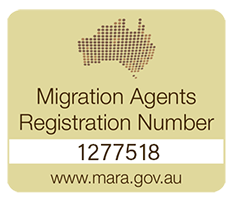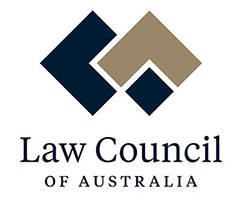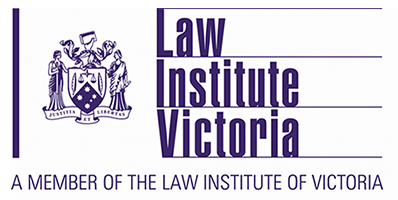What is a Will and why is it so important?
A Will is a formal legal document through which you express your final wishes and determine the distribution of your property and any other assets when you pass away.
If you take the time now to make an effective legally binding Will you can save your family not only stress but money in what will undoubtedly be a difficult time for them.
Unfortunately, nearly half of all Australians do not have a Will, and for those who do have a Will, it may no longer be a true reflection of their wishes.
If you die without a Will, the law decides who gets your assets. This is called ‘dying intestate’. The major shortcoming of dying intestate is that your assets will not be distributed in accordance with your wishes. Often disputes arise when a person dies without a Will and these disputes inevitably put family members against each other.
How do I make a will?
There is no one answer about how to do your Will. It all depends on your assets, your circumstances and who your beneficiaries will be.
You need to make a Will that makes your wishes clear, that avoids confusion and conflict amongst your loved ones, and that is legally valid and binding. Doing this will protect your family and friends from costly and stressful legal disputes.
Things you need to consider
Who will be your Executors?
Your Executors have the legal and administrative task of sorting out your assets and debts after you die and making sure that your wishes as outlined in the Will are upheld.
Who will be your beneficiaries?
You can designate anyone as a beneficiary and distribute your assets in any way you like, however if you do not provide for your family and dependents, your Will can be contested and your hard-earned assets used on litigation fees.
Who will be the guardian of any minors?
It is important to consider guardianship where the beneficiaries are minors, that is, who will be responsible for looking after and raising your children. Guardians are usually family members.
How do you know a Will is valid?
To be valid, the person making the Will must be mentally competent, the Will must be correctly signed and witnessed by two witnesses, and show no evidence of tampering. The witnesses to the Will should not be beneficiaries, or related to beneficiaries, and must be over 18.
How often should I review my Will?
You should review your Will after any major events, such as marriage, divorce, property purchase or sale, death of a beneficiary or if your assets change significantly. We also recommend that you take a look at your Will every couple of years just to make sure that it is still the best instrument for you and for your family.
We can help
We know the potential pitfalls, and will ask you all the right questions to make sure that you have considered every possibility. We can design your Will in such a way to help protect your family from expensive estate litigation after your death.
What is an executor?
When a person makes a will, they must appoint an executor. When the person dies, the executor becomes the legal representative of the person’s estate. An estate is the deceased person’s collective belongings, assets, debts and other liabilities.
The executor is responsible for ensuring that the terms of the will are carried out. An executor must:
- Locate and collect the deceased’s assets.
- Pay the estate’s debts.
- Distribute the estate to the beneficiaries in accordance with the requirements of the will.
- How this is done depends on the terms of the will and the nature and extent of the assets of the estate.
What is probate?
At its most basic, probate is the legal process of proving a will and the official recognition by the Court that the will is legally valid.
Grant of Probate
The Grant of Probate is a certificate issued by the Court. It grants the executor the right to deal with the deceased’s estate. The estate’s assets and liabilities vest in the executor.
The Grant of Probate is proof to everyone that the executor is entitled to deal with the estate.
Is a Grant of Probate always necessary?
Whether a Grant of Probate is needed will depend on the nature and extent of the assets and the complexity of the estate. Estates with modest assets and liabilities may not need a Grant of Probate at all and may be dealt with informally.
But, for example, where there is real estate, an accommodation bond refund or substantial shareholdings, a Grant of Probate will always be necessary.
Consider this: the deceased had some bank accounts with XYZ Bank, with a total value of $150,000. XYZ Bank needs to be able to pay out the money and close the accounts. The executor has provided a Grant of Probate, which is proof that the executor is the person who is entitled to collect the money.
What if there was no will?
If a person dies without a will, they are intestate.
A person who wants to inherit some or all of the estate may make an application to the Supreme Court to have an administrator appointed to deal with the estate. If the Court grants the application, this is known as a Grant of Letters of Administration.
There is an order of priority for those who can make an application, including the deceased’s:
- Spouse or domestic partner
- Children
- Parents
- Siblings
There is a similar priority list for those who can be beneficiaries of an intestate estate.
Where to start
A Grant of Probate and Letters of Administration can be highly technical applications to make. Because the Court must carefully assure itself that the applications are not fraudulent, requirements are stringent.
Documents to be lodged with a probate application include:
- The original will.
- The death certificate.
- Executor’s Oath
- A Statement of assets and liabilities of the estate.
Often additional evidence will be required, for example:
If there are additional staple holes or markings on the will, they will require explanation.
If there are issues with the way in which the will was executed, an affidavit will be required to support the application.
Any error in the documents will stall the application. But the good news is that probate practitioners can provide advice, guide you through the process and prepare the paperwork. For many clients, this alleviates much of the stress associated with executor duties.





















